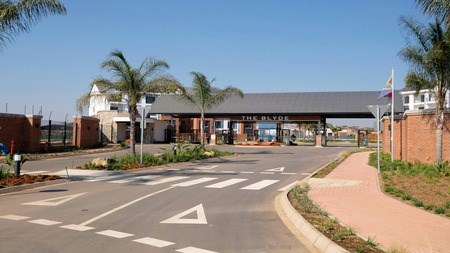The Community Scheme Ombud Service Bill has been approved by the Portfolio Committee on Human Settlements. In terms of the bill, community schemes include:
Sectional title development schemes in terms of the Sectional Titles Act.
Share block companies governed by the Share Blocks Control Act and the Companies Act.
Home or property owners; associations, whether constituted as companies under the Companies Act or as common law associations, established to administer property developments.
Housing schemes for retired persons in terms of the Housing Developments for Retired Persons Act.
Housing co-operatives under the South African Co-operatives Act.
This list also includes any other scheme or arrangement in terms of which there is shared use of and responsibility for parts of land and buildings.
This legislation is a significant development in the South African law applicable to the administration of real property: it recognises a wide range of different legal arrangements currently used to provide urban housing and shared facilities as being part of a new class – the community scheme.
The purpose of the Community Scheme Ombud Service can be summarised as being to:
Provide a dispute resolution service with national reach for community schemes.
Train conciliators, adjudicators and other service employees.
Take custody of, control the quality of and provide public access to all sectional title scheme governance documentation and other such documentation determined by the minister.
Promote good governance of community schemes and monitor that governance.
Provide education, information, documentation and other services to raise the awareness of owners, occupiers executive committees and others who have rights and obligations in community schemes.
Dispute resolution
When a community scheme’s governing body, an occupier or an owner has a dispute about the administration of a scheme with any other person who also has a material interest in that scheme, they will be able to approach the service for assistance in resolving the dispute. The envisaged process involves the prior use of internal dispute resolution mechanisms. Where these prove ineffective and a dispute is referred to the service, the first option will be professional conciliation. Where this fails or seems unlikely to succeed, the matter will be referred to an adjudicator for fast-tracked resolution.
In line with international best practice, the bill does not give the service unlimited jurisdiction in the sphere of community scheme administration disputes. The dispute must fall into one of the categories set out in clause 38 of the bill, under the headings of financial issues, behavioural issues, scheme governance issues, meetings, management services, works pertaining to private and common areas, and general and other issues.
Training
The bill recognises that the skills necessary to operate the dispute resolution processes may not be generally available at reasonable cost. It therefore specifies that one of the service’s functions os to train conciliators and adjudicators. The persons who carry out these functions on a full- or part-time basis will need a working knowledge of the law and practices involved in the operations of the relevant community schemes, as well as in the processes of investigation, conciliation or adjudication.
It is inevitable that some of those trained by the service will use their skills in other contexts. When they operate outside the service, these people’s skills will serve to raise the general level of understanding of the operations of community schemes in South African society and, in this way, will further the overall objectives of the service.
Documentation and monitoring
The service’s role in ensuring that scheme participants and role-players have reliable and ready access to community scheme governance documentation will be a major factor in improving the operation of community schemes.
The bill makes provision for annual returns that must be made by community schemes to the service, including copies of schemes’ annual financial statements. At present, there are many community schemes that operate without regard for the requirements of their governance documents and any statutes that may govern their operations. The fact community schemes will have to prepare annual returns to the service will serve as an annual reminder to scheme executives and managing agents that they must comply with the requirements of these provisions.
Awareness and education
Again, in line with international best practice, in “strata” and “condominium” schemes, the bill recognises that it is important to educate those who have rights and obligations in community schemes and to raise awareness among them to prevent disputes, a significant number of which are caused by a lack of information and understanding of community schemes.




